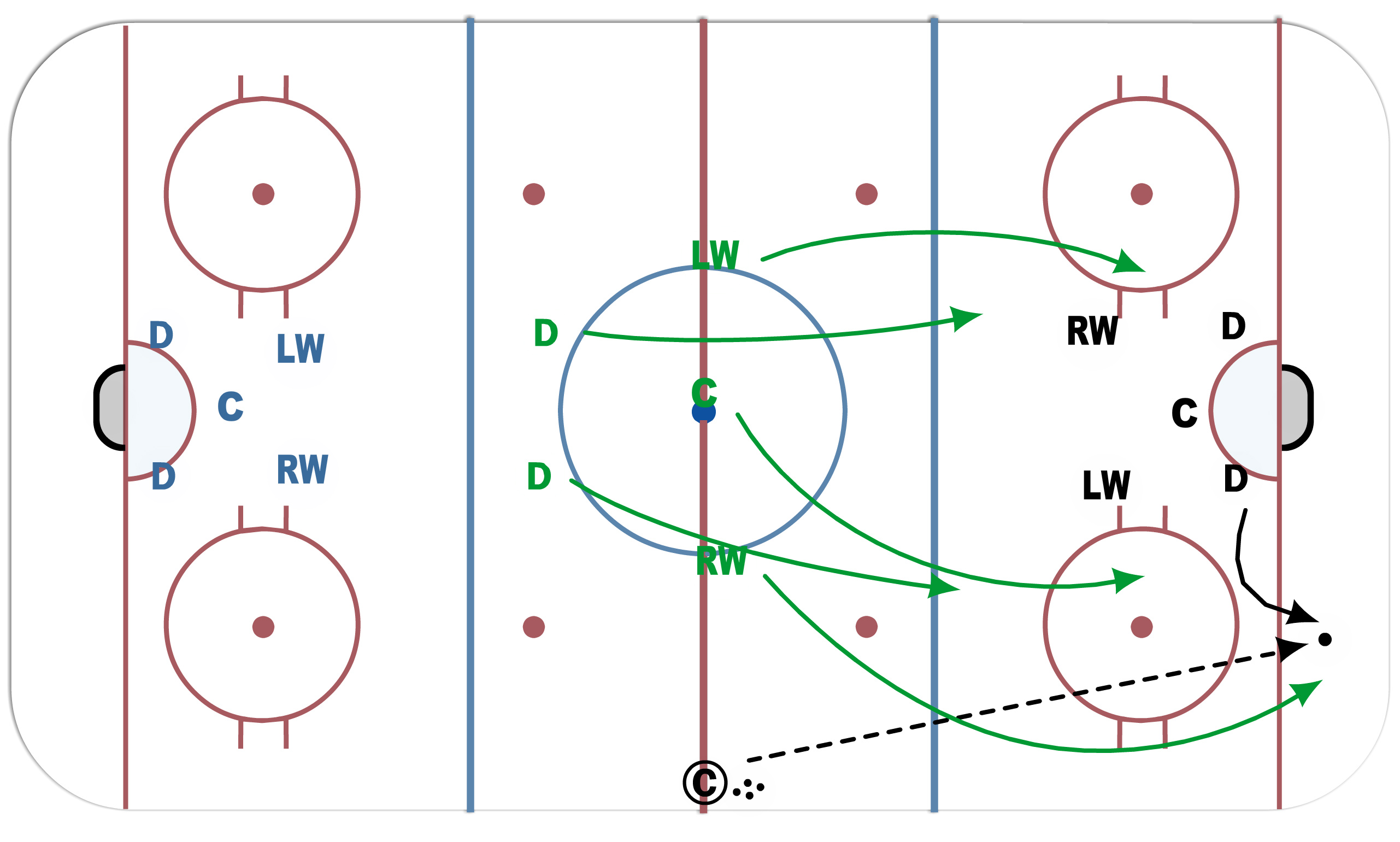Mastering The Art Of Forechecking: A Comprehensive Guide To What Is Forechecking In Hockey
Forechecking is one of the most critical components of modern hockey, yet many fans and even players struggle to fully understand its intricacies. It’s not just about chasing the puck in the offensive zone; it’s a strategic maneuver that can significantly impact the flow of the game. Understanding what is forechecking in hockey can transform a casual fan into a knowledgeable enthusiast and elevate a player’s performance on the ice. This article dives deep into the concept, offering insights, strategies, and expert analysis to help you grasp this essential aspect of the sport.
In today’s fast-paced hockey environment, forechecking has evolved from a simple defensive tactic to a sophisticated strategy that demands precision, teamwork, and adaptability. By mastering the art of forechecking, teams can create turnovers, generate scoring opportunities, and maintain control of the game. Whether you’re a player, coach, or fan, understanding the nuances of this technique is crucial for appreciating the complexities of hockey.
As we explore the world of forechecking, you’ll discover how it fits into the broader context of hockey strategy, the different systems teams employ, and the skills required to execute it effectively. This guide is designed to provide clarity and depth, ensuring that by the end, you’ll have a comprehensive understanding of what is forechecking in hockey and why it’s so important.
Read also:Star Sign For September 15 Everything You Need To Know About Virgo Zodiac
Table of Contents
- What is Forechecking in Hockey?
- Why is Forechecking Important?
- What Are the Different Forechecking Systems?
- How Does Forechecking Impact Team Strategy?
- What Skills Are Needed for Effective Forechecking?
- Common Misconceptions About Forechecking
- How to Train for Forechecking
- Key Players Known for Their Forechecking Abilities
- Forechecking in Modern Hockey
- Conclusion: Embracing the Power of Forechecking
What is Forechecking in Hockey?
Forechecking, at its core, refers to the strategy employed by a team when they are in the offensive zone, attempting to regain possession of the puck. It involves applying pressure on the opposing team’s defensemen and forwards to force turnovers and create scoring opportunities. What is forechecking in hockey is often misunderstood as simply chasing the puck, but it’s much more than that—it’s a calculated approach to disrupting the opponent’s play and maintaining offensive momentum.
How Does Forechecking Work?
The mechanics of forechecking involve a combination of speed, agility, and teamwork. Players must communicate effectively to cover all angles and ensure that the opposing team doesn’t have an easy escape route. A successful forecheck requires players to anticipate the opponent’s moves, cut off passing lanes, and force them into making mistakes. This strategic approach is what makes forechecking such a valuable tool in a team’s arsenal.
What Are the Key Elements of Forechecking?
- Aggressive Pressure: Applying constant pressure on the opposing team’s defensemen.
- Positioning: Ensuring players are in the right positions to intercept passes or block escape routes.
- Communication: Maintaining constant communication between teammates to coordinate efforts.
Why is Forechecking Important?
Forechecking serves multiple purposes in a hockey game. It not only helps teams regain possession but also disrupts the opponent’s rhythm, forcing them to play defensively. By applying constant pressure in the offensive zone, teams can wear down their opponents, creating opportunities for fatigue-induced errors. Additionally, effective forechecking can lead to quick transitions from defense to offense, catching the opposing team off guard and increasing the likelihood of scoring.
What Role Does Forechecking Play in Team Success?
Teams that excel in forechecking often dominate possession and control the pace of the game. By forcing turnovers and creating scoring chances, they can dictate the flow of play. Furthermore, strong forechecking can demoralize opponents, making them hesitant to enter the offensive zone. This psychological advantage can be just as important as the physical aspects of the game.
What is the Impact of Forechecking on Game Dynamics?
The presence of an aggressive forecheck can alter the dynamics of a game significantly. It forces opposing teams to adapt their strategies, often leading to more conservative play. Teams that rely heavily on forechecking tend to be more aggressive overall, which can lead to higher-scoring games and more exciting matchups for fans.
What Are the Different Forechecking Systems?
There are several forechecking systems that teams can employ, each with its own strengths and weaknesses. The most common systems include the 1-2-2, 2-1-2, and 1-3-1 formations. Each system requires different levels of aggression, positioning, and communication, making it essential for teams to choose the one that best suits their style of play.
Read also:How To Set Up Remote Access To Raspberry Pi Over The Internet For Free
How Does the 1-2-2 System Work in Forechecking?
In the 1-2-2 forechecking system, one forward pressures the puck carrier while the other two forwards cover the middle of the ice. The two defensemen position themselves along the blue line, ready to provide support if needed. This system is effective for teams that prioritize defensive stability while still maintaining offensive pressure.
What Makes the 1-3-1 System Unique in Forechecking?
The 1-3-1 system is more aggressive, with one forward applying pressure on the puck carrier and the other three players forming a tight line across the ice. This setup allows for quick transitions and can overwhelm opponents who aren’t prepared for the intense pressure. However, it also leaves teams more vulnerable to counterattacks if not executed properly.
How Does Forechecking Impact Team Strategy?
Forechecking plays a crucial role in shaping a team’s overall strategy. Teams that emphasize forechecking often prioritize speed, agility, and endurance in their player selection. They also focus on developing strong communication skills and fostering a cohesive unit that can work together seamlessly on the ice. By integrating forechecking into their game plan, teams can create a more dynamic and unpredictable style of play.
What Challenges Do Teams Face When Implementing Forechecking?
While forechecking offers numerous advantages, it also presents challenges. Teams must balance the need for offensive pressure with the risk of leaving themselves exposed to counterattacks. Additionally, maintaining the energy and focus required for effective forechecking can be demanding, especially over the course of a long season. Coaches must carefully manage these factors to ensure their teams remain competitive.
What Skills Are Needed for Effective Forechecking?
Successful forechecking requires a combination of physical and mental skills. Players must possess speed, strength, and agility to effectively pressure opponents. They also need excellent skating skills to quickly change direction and maintain balance while engaging in physical battles. Mentally, forecheckers must be able to read the game, anticipate their opponents’ moves, and make quick decisions under pressure.
How Can Players Improve Their Forechecking Skills?
Improving forechecking skills involves a combination of practice, conditioning, and strategy development. Players should focus on enhancing their skating techniques, building upper and lower body strength, and improving their situational awareness. Coaches can help by designing drills that simulate game scenarios and encouraging players to study successful forechecking strategies used by top teams.
Common Misconceptions About Forechecking
Despite its importance, forechecking is often misunderstood. One common misconception is that it’s solely about physicality and aggression. While these elements are important, forechecking is also a mental game that requires strategic thinking and precise execution. Another misconception is that it’s only effective for certain types of teams, when in reality, any team can benefit from incorporating forechecking into their playbook.
How to Train for Forechecking
Training for forechecking involves a comprehensive approach that addresses both physical and mental aspects of the game. Players should engage in conditioning exercises that focus on improving endurance, strength, and flexibility. On-ice drills should emphasize skating techniques, puck handling, and communication skills. Off-ice activities, such as video analysis and tactical discussions, can also enhance players’ understanding of forechecking strategies.
Key Players Known for Their Forechecking Abilities
Throughout hockey history, several players have distinguished themselves through their exceptional forechecking skills. These players not only excel in applying pressure but also possess the intelligence and adaptability to execute forechecking strategies effectively. Below is a table highlighting some of the most notable forecheckers in the sport.
| Name | Position | Team | Notable Achievements |
|---|---|---|---|
| Sean Couturier | C | Philadelphia Flyers | Multiple Selke Trophy nominations |
| Patrice Bergeron | C | Boston Bruins | Four-time Selke Trophy winner |
| Jonathan Toews | C | Chicago Blackhawks | Three-time Stanley Cup champion |
Forechecking in Modern Hockey
In modern hockey, forechecking has become even more critical due to the increasing speed and skill level of players. Teams are constantly adapting their forechecking strategies to counteract the evolving tactics of their opponents. Advanced analytics and video analysis have also played a significant role in refining forechecking techniques, allowing teams to make data-driven decisions about their approach.
Conclusion: Embracing the Power of Forechecking
Understanding what is forechecking in hockey is essential for anyone looking to deepen their appreciation of the sport. Whether you’re a player, coach, or fan, mastering the intricacies of forechecking can enhance your experience and enjoyment of the game. By embracing the power of forechecking, teams can gain a competitive edge and create unforgettable moments on the ice.
Article Recommendations

